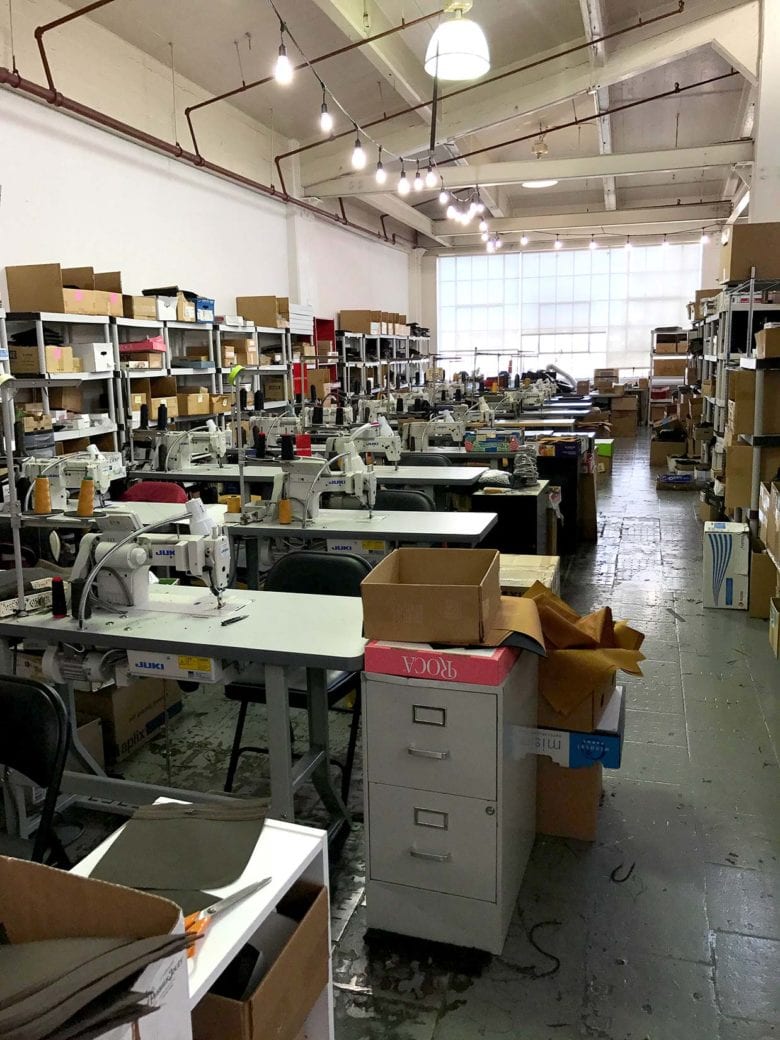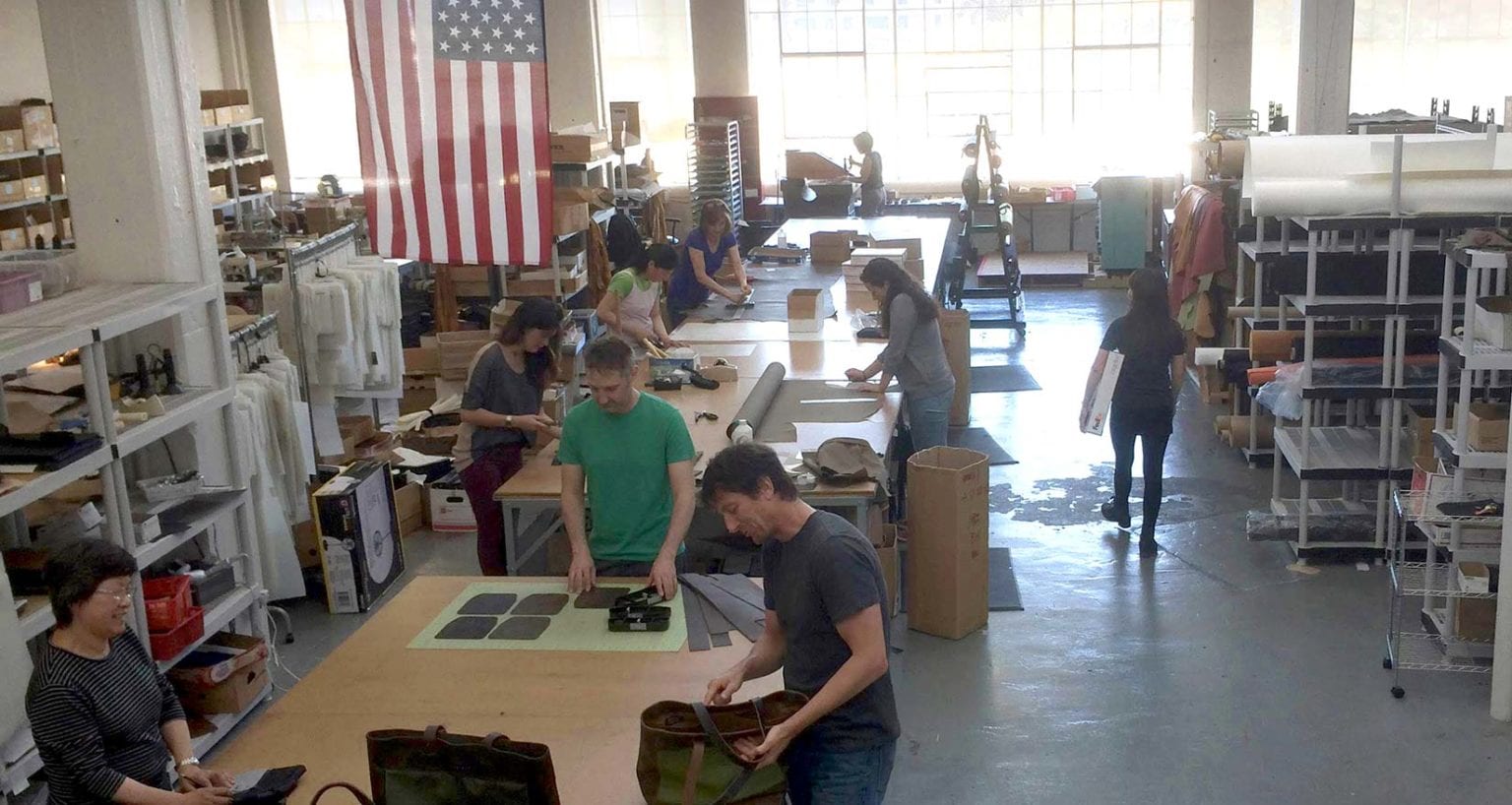Gary Waterfield should be collaborating with colleagues today over the hum of sewing machines producing an elegant leather crossbody laptop bag.
The small-batch tech backpacks and shoulder bags of WaterField Designs since 1998 have attracted discerning Apple users. Waterfield likes to time a new production run with an Apple product launch.
But when Apple unveiled the new MacBook Air and iPad Pro with Magic Keyboard this week, the handful of WaterField employees were stuck in their San Francisco-area homes on one of the strictest lockdowns since the coronavirus invaded American soil.
“We aren’t there to make the bags, so we can’t ship and that obviously hurts,” Waterfield said. “Many people don’t order unless we can ship right away. For those that do order, we certainly appreciate their support to keep us going.”

Photo: WaterField Designs
In less than three months, the fast-moving COVID-19 outbreak has brought large parts of the world to a screeching halt as health officials try to slow the spread by recommending we avoid routine gatherings, like at the office, at all costs.
Industries are anxious about prolonged work stoppages. But the big companies, like Apple, have the cash reserves to sit awhile. Many smaller, third-party companies that support or accessorize our favorites gadgets, don’t have the same cushion.
Cult of Mac interviewed a handful of CEOs who were willing to share the challenges of running small companies in the middle of a pandemic.
Supply and demand, both down
“The biggest challenge now is that parts and components are much harder to obtain, so supply chains are going to be slowed,” said Marc Barros, whose company, Moment, makes high-end smartphone lens attachments for mobile content creators. “All of our suppliers are back to work and we have enough inventory to weather the storm. We’re staying optimistic that this is a few-months challenge for the world and not several months.”
Barros said brands are struggling because consumer spending is down between 20 and 40 percent. Creators the company works with have lost clients overnight, especially shooters creating work for travel brands.
Moment’s team of designers, engineers and content creators work remotely already.
Mujjo, which makes iPhone cases, sleeves for iPads and MacBooks, and touchscreen gloves, sent its employees home last week in The Netherlands.
There have been slight delays in getting supplies, but the company’s peak season isn’t until later in the year, said Remy Nagelmaeker, Mujjo’s managing director.
“We are all used to working on larger screens (27-inch iMacs). We think this makes work more effective,” he said. “So we brought everyone’s iMacs over to their homes and continue to work as seamlessly as possible.”
This, however, is not an option for WaterField Designs, where design takes place with the sewers on the factory floor.
“Design is a coordinated effort between our designers and craftspeople,” Waterfield said. “Since we’re all home on lockdown, this kind of collaboration can’t happen again until we get back to the shop. It’s only Day 3, but honestly, we need to be back at the shop working with the sewing team, immersed in our surroundings to create new products.”
Rolling with the punches
Imaging software company Skylum ordered its team of more than 100 to work from home. For a big update to its popular photo editing app, Luminar, announced Thursday, designers and engineers did the work through collaboration programs like Slack and Zoom.
“The world is now our office,” Skylum CEO Alex Tsepko said. “It’s a good exercise for our focus and corporate connectivity. I am sure it will allow us to deliver even more great things to the millions of artists around the world.”
To that end, Skylum is pushing out resources for artists and photographers idled by orders to self-isolate. The company has provided tips for productivity while at home and how photographers can prepare for coronavirus, which includes precautions while in the field or how to develop contingency plans when client work dries up.
Skylum has also launched The Artist Notebook, an online experience for artists to come together, explore creativity and retain a good attitude.
Other companies have offered discounts in order to support and stay connected to their customer base. Adobe has offered schools and students free Creative Cloud through May 31 to help facilitate distance learning.
In fact, Adobe is giving every Creative Cloud subscriber two free months to support artists holed up at home.
CEO James Zheng, whose company, Pitaka, makes charging stations for Apple products, said planning during the early stages of the outbreak reduced the impact on his company. Based in Hong Kong and Shenzhen, China, Zheng said they protected employees wit masks, medical supplies and eventually sent them home to work.
Some of the engineers took home testing equipment while one engineer volunteered to stay in Pataka’s lab for more extensive product testing.
Even as China returns to business as usual, Pitaka and others continue to deal with pandemic fallout, like a drop in demand, supply-side delays and a workforce that has not fully rebounded.
“A lot of workers couldn’t get back to the factory due to the quarantine policy and some of them didn’t want to,” Zheng said. “The impact still continues even though the quarantine policy is over. There are workers in China who prefer to stay countryside for health. They won’t get back to work until they feel safe.”


